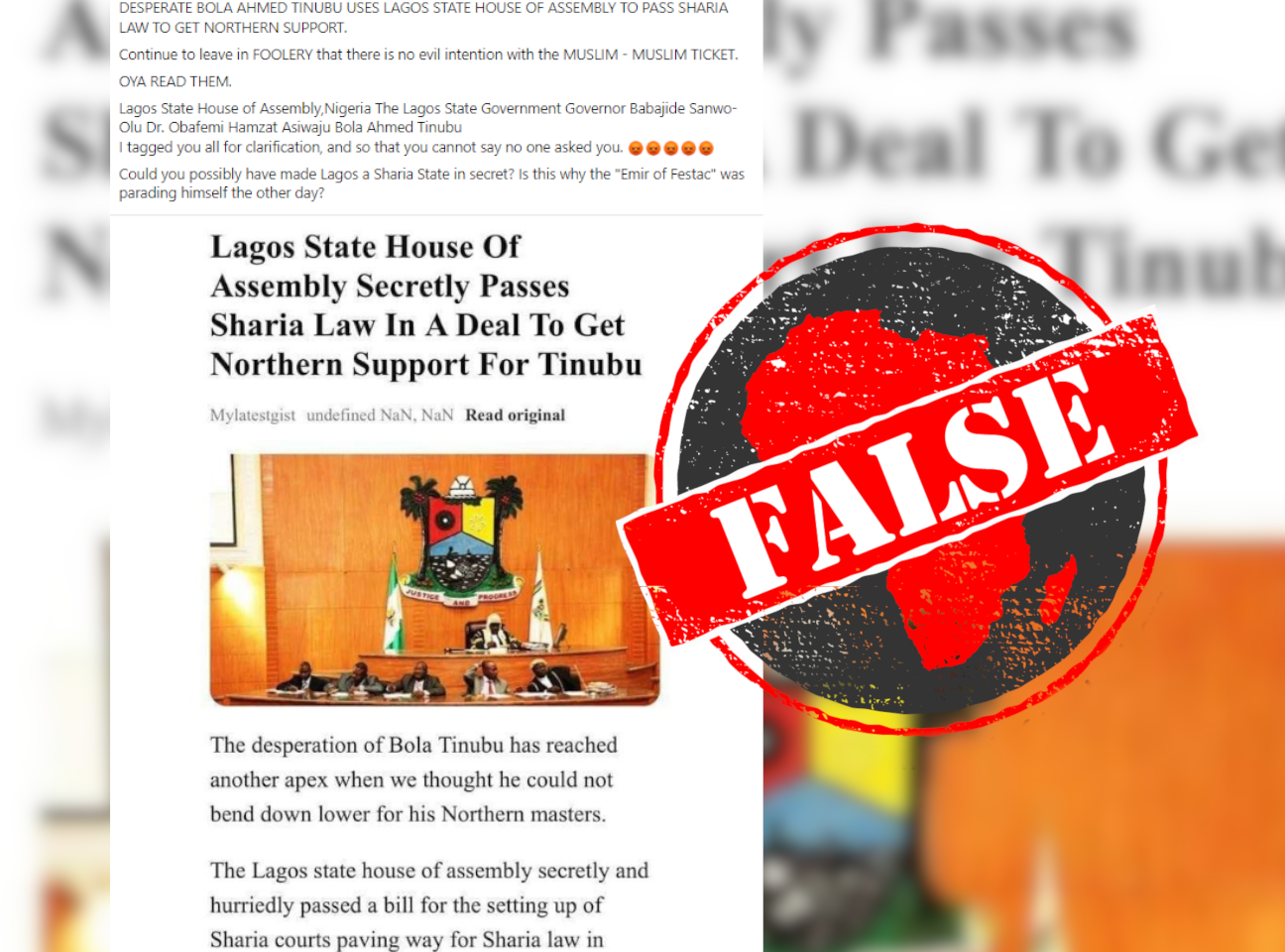A screenshot of an unknown website was being shared on Facebook and WhatsApp in Nigeria in mid-July 2022, with the claim Lagos state had passed a bill to set up Sharia courts in the state.
Sharia is Islamic religious law, seen by Muslims as an expression of God’s commands, forming a system of duties for believers.
“Lagos State House Of Assembly Secretly Passes Sharia Law In A Deal To Get Northern Support For Tinubu,” reads the text in the screenshot.
It continues: “The desperation of Bola Tinubu has reached another apex when we thought he could not bend down lower for his Northern masters.”
Tinubu is the presidential candidate for the ruling All Progressives Congress in Nigeria’s presidential elections, slated for February 2023.
The text in the screenshot goes on to claim that the house of assembly “secretly and hurriedly passed a bill for the setting up Sharia courts paving way for Sharia law in Lagos which has since been signed into law by the current state governor”.
The claim was also posted elsewhere on Facebook.
Is this news authentic? We checked.

Claims dismissed as ‘false’
The Lagos state house of assembly said on Twitter on 13 July that the news was false.
The full statement by Setonji David, the chairperson of the house committee on information, security and strategy, read: “The attention of the Lagos state house of assembly has been drawn to a malicious and unfounded report making the rounds on social media, that the assembly has secretly passed a sharia law in a deal to get Northern support for Tinubu, the APC presidential candidate.
“We will not have dignified the writer of this hate speech but to set the records straight, this is a mere figment of the imagination of the writer, and a total lie from the pit of hell.”
David also said that the process of law-making was open to the public: “You cannot pass a law without subjecting it to public hearing in Lagos state.”
Republish our content for free
For publishers: what to do if your post is rated false
A fact-checker has rated your Facebook or Instagram post as “false”, “altered”, “partly false” or “missing context”. This could have serious consequences. What do you do?
Click on our guide for the steps you should follow.
Publishers guideAfrica Check teams up with Facebook
Africa Check is a partner in Meta's third-party fact-checking programme to help stop the spread of false information on social media.
The content we rate as “false” will be downgraded on Facebook and Instagram. This means fewer people will see it.
You can also help identify false information on Facebook. This guide explains how.


Add new comment